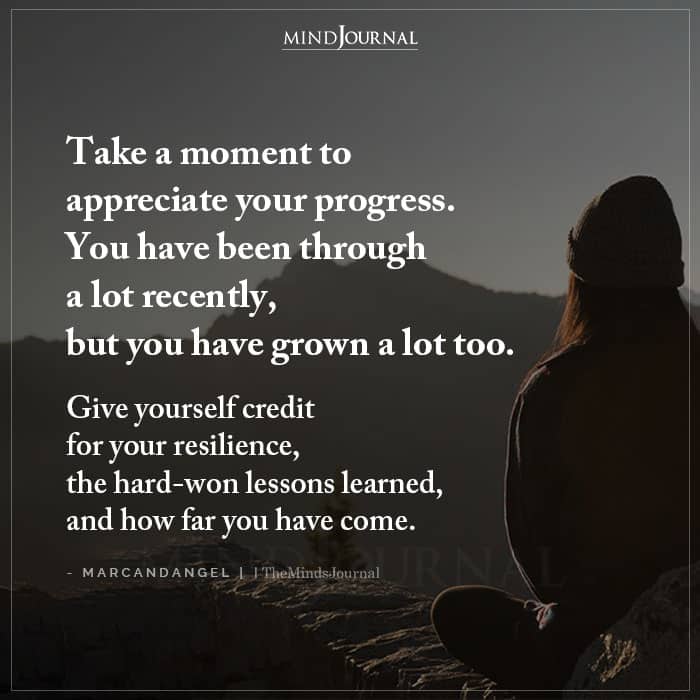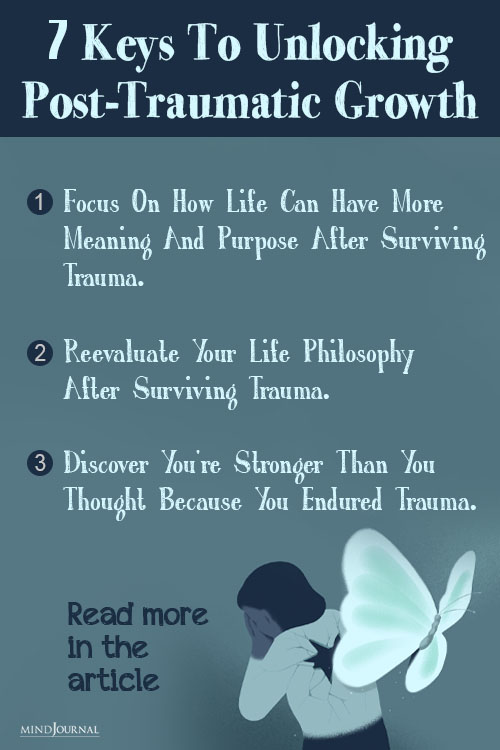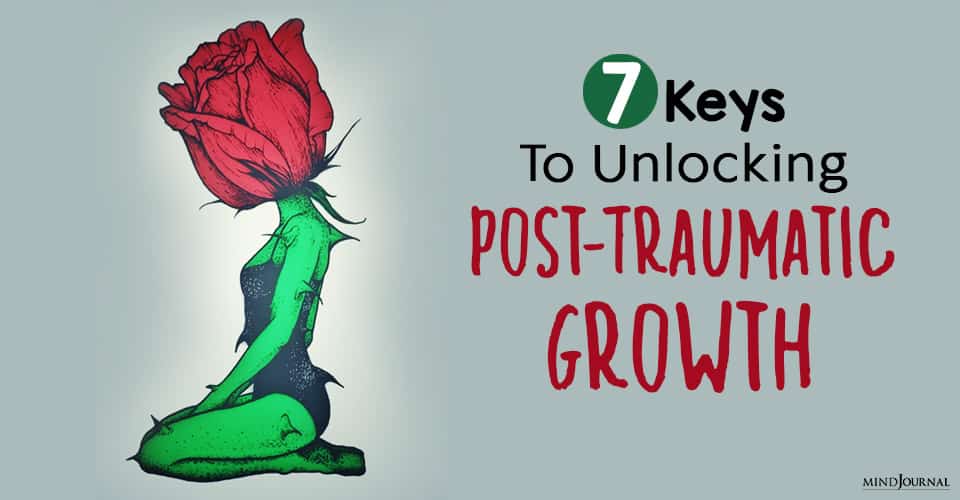“There is a moment in our healing journey when our denial crumbles; we realize our experience and it’s continued effects on us won’t “just go away”. That’s our breakthrough moment. It’s the sun coming out to warm the seeds of hope so they can grow our personal garden of empowerment.” ― Jeanne McElvaney
Written By Jason N. Linder
Key Points: Your life philosophy, relationships, and personality can improve after surviving a traumatic event After enduring a trauma, you may well discover you’re stronger than you thought. You may discover new feelings of appreciation, connection, creativity, and gratitude after trauma.
“What doesn’t kill me makes me stronger”—Nietzche
Despite the many privileges I’ve been blessed with, I’ve had my share of difficult experiences. For example, I grew up with a pronounced speech impediment, an auditory-processing disability, and was bullied constantly in school as a child. I used to be afraid of answering the phone because I didn’t know if I could say “hello” in time before the person calling would hang up from the silence on my end. In high school, I was also chronically teased because of acne, called pizza-face routinely in class and recess. I ate alone often at school. It wrecked my self-esteem, my sleep, appetite, well-being, and relationships.
Fortunately, channeling my own post-traumatic growth (PTG: experiencing positive shifts in outlook, purpose, strength, wisdom, relationship improvements, and meaning above one’s previous baseline before the hardship occurred) and receiving EMDR trauma therapy transformed my life.
Those past experiences don’t bother me at all anymore; in fact, they’ve become conduits to my success. It turns out I’m not alone. Many people don’t suffer from PTSD after facing significant hardship; as many as 70 percent of survivors of various forms of trauma report experiencing some positive change in at least one domain of life.
Related: The Biggest Reason People Struggle With Low Self-Esteem
Human nature is to be resilient. It turns out resilience (bouncing back from hardship and returning to baseline) and PTG can be summarized down to certain skills, practices, and traits that we can cultivate, develop, and strengthen with time, in and out of therapy. Here’s how (with personal examples).
Here Are 7 Keys To Unlocking Post-Traumatic Growth
1. Focus On How Life Can Have More Meaning And Purpose After Surviving Trauma.
Personally, I’ve noticed how the hardship I’ve faced above has helped me connect to the pain of others, especially my clients. I think I’m a better therapist, largely because I survived and grew from the bullying trauma I faced. It has connected me to my life’s purpose of helping others heal trauma and training EMDR therapists to do the same.
2. Reevaluate Your Life Philosophy After Surviving Trauma.
This can unintentionally lead to positive personality changes, such as more confidence, self-control, warmth, and emotional stability. Surviving the bullying helped me realize that, despite living in an image-focused materialist world fueled by social media, I wanted and have lived more internally-driven than externally (originally the bullying forced me to), not as easily moved or affected by others’ harmful words or actions.
As the well-known adage “sticks and stones can break my bones but words can’t hurt me.” I thank you, bullies, for pushing me to do this sooner rather than later.
3. Discover You’re Stronger Than You Thought Because You Endured Trauma.
We genuinely don’t know what we’re capable of until we’re tested. The bullying, stuttering, and learning challenges I faced didn’t stop me from completing my doctorate, landing multiple scholarships, learning Spanish, among many of my accomplishments. In fact, I think it strengthened my drive to succeed, passion for learning, and break the barriers these challenges tried to impose on me.

4. Discover New Feelings Of Appreciation, Gratitude, And Less Unnecessary Seriousness From Enduring Trauma.
This can be increased appreciation for life, self-acceptance, and/or autonomy. Ironically, I’m also not sure if I would have become this successful in my career if it weren’t for the hardship I faced. It forced me to learn many healing methods and focus on all my blessings. Again, I thank my bullies for not only helping me realize this sooner rather than later but also connecting me to my mindfulness practice.
Related: Broadening Our Understanding of Trauma: Why Context Matters
5. Discover How You’re Part Of Something Bigger Than Yourself, Perhaps Feeling More Spiritual From Enduring Trauma.
Bullying, acne, stuttering, and learning disabilities are among the many issues fueling trauma in others’ lives and because I suffered from them so acutely, I feel universally connected to others’ pain, even for those of you in other countries, I will never meet. It has helped me build close relationships with my loved ones, students, clients, and colleagues and feel compassion for strangers I bump into in public.
6. Realize How Your Relationships Become More Important And Increasingly Connect To What Really Matters After Suffering Trauma.
As I mentioned in #5 above, I’ve noticed my trauma has given me tools of compassion, empathy, and care that have proven to be extremely useful in my personal and professional pursuits.
Related: What To Do About Your Trauma
7. Flex Your Creativity Muscle.
Artists, musicians, and writers report their creative drive to decrease when their lives are generally calm, easy, and un-chaotic, and that stressful events, like a divorce or a pandemic, can replenish their creative juices. I’m sure you can think of many examples of this, public and private. Thank you, hardships, for giving me so much material to write about (especially this post).
Yes, trauma is worse than hard, and parts of this post may not apply to you like if you suffered complex trauma and/or trauma is actively still happening in your life. Also, I’m not asserting that hardship is good, but it can definitely have unintended positive consequences and a “silver lining.” My own experiences, those of others, and the research (key sources among many cited below) suggest PTG is more commonplace and accessible than you may imagine.
How has your pain, trauma, or hardship strengthened you?
This post is not meant to substitute for treatment with a qualified professional. If you’re looking for an EMDR therapist, I recommend checking the EMDR International Association (EMDRIA) website to ensure the therapist is certified (ideally), or minimally, was trained by an approved EMDR training provider. Copyright Dr. Jason Linder.
References Calhoun, L. G., Cann, A., & Tedeschi, R. G. (2010). The posttraumatic growth model: Sociocultural considerations. Faller, G. R. (2016). Sacred Stress: A Radically Different Approach to Using Life's Challenges for Positive Change. SkyLight Paths Publishing. Linley, P. A., & Joseph, S. (2004). Positive change following trauma and adversity: A review. Journal of traumatic stress: official publication of the international society for traumatic stress studies, 17(1), 11-21.
Written By Jason N. Linder Originally Appeared On PsychologyToday












Leave a Reply